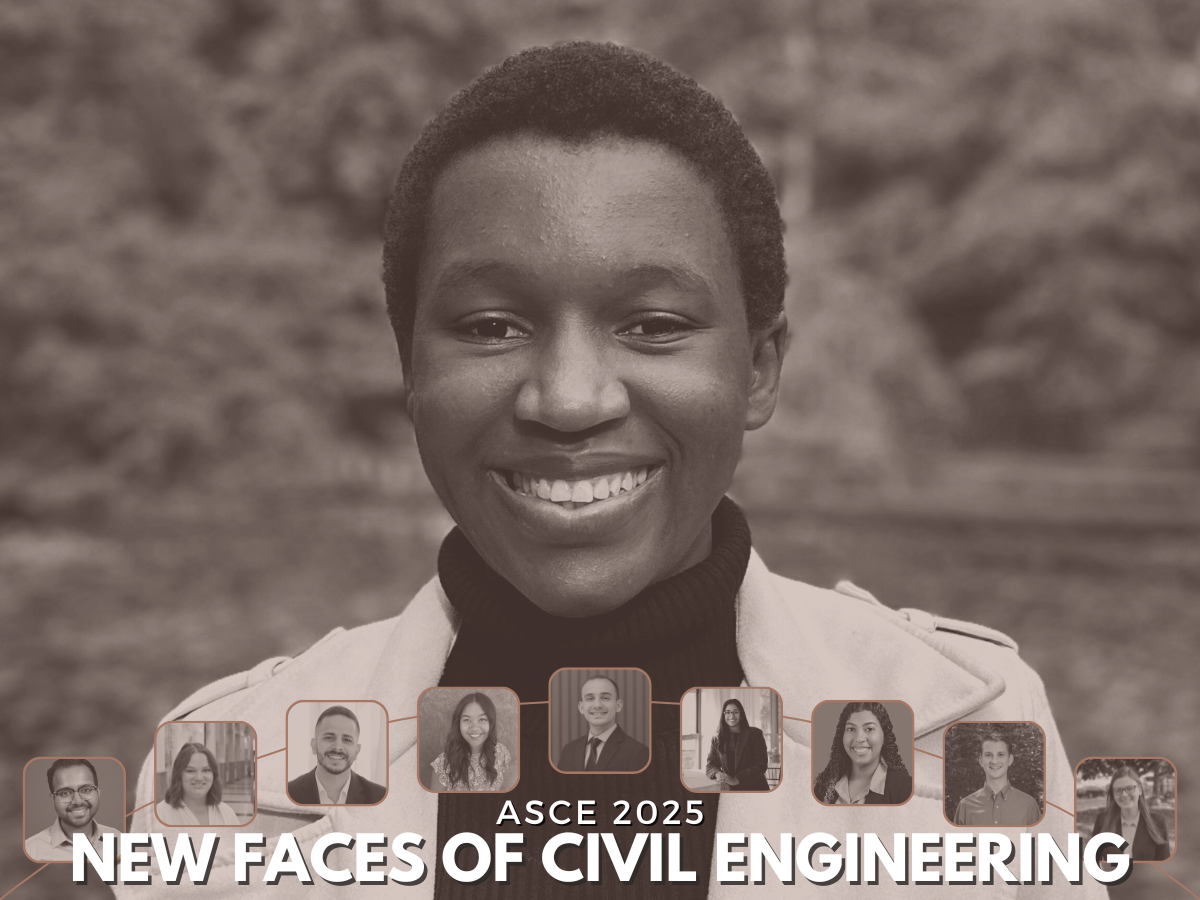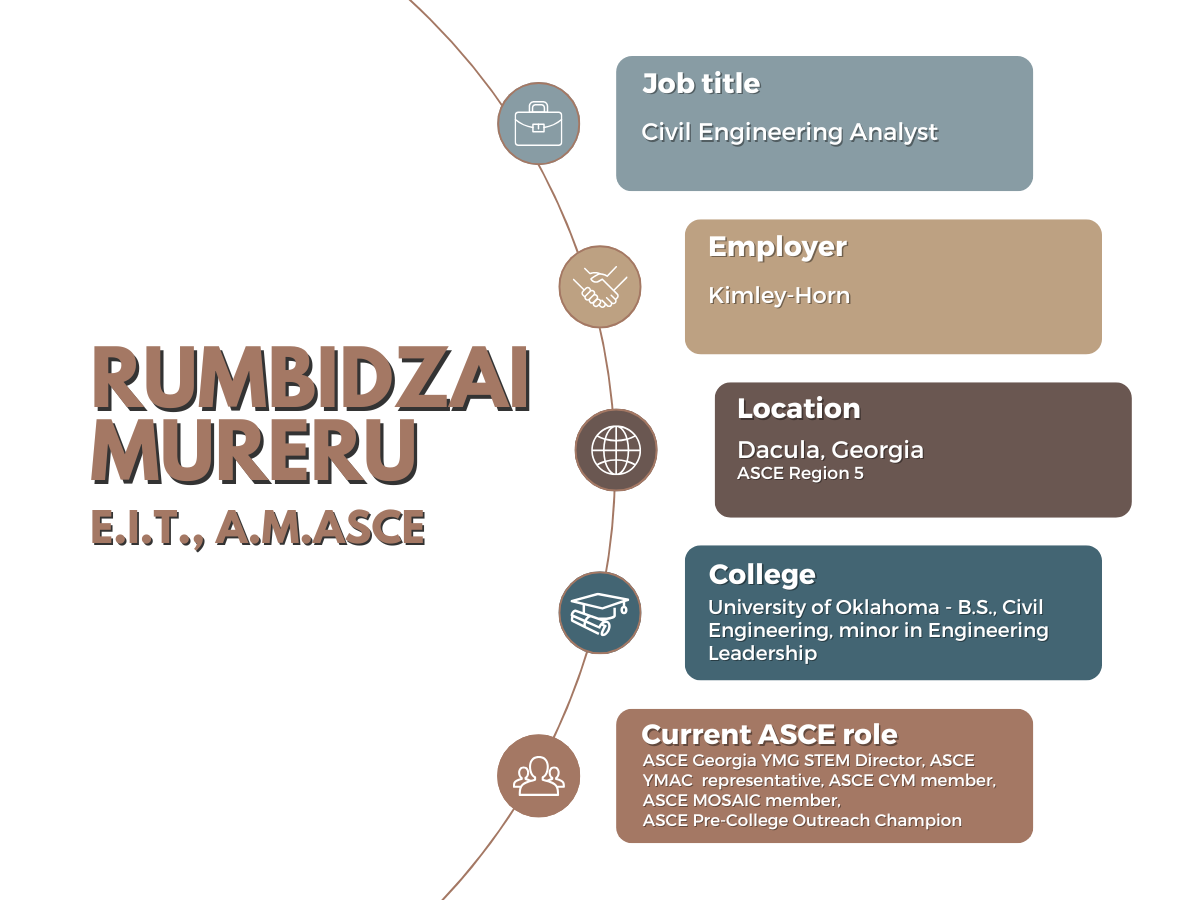

Rumbidzai Mureru – or Rumbi – was used to living away from home.
She’d attended boarding school as a young student and left her native Zimbabwe for high school, pursuing an International Baccalaureate diploma at a United World College in Eswatini (then Swaziland).
But this was different.
This wasn’t like middle school, meeting new kids from different parts of Africa, most of whom spoke something close to the Ndebele language she knew from home.
This was college – with classes taught in English – with American kids and their American quirks and customs.
This was Oklahoma.
“The culture shock was massive at first,” said Mureru, who came to the University of Oklahoma in Norman, Oklahoma, as a freshman undergrad on a Davis UWC Scholarship to study civil engineering.
“I’d never had a bank account before! I had to navigate transportation. And I had to work to cover some expenses and to take care of my family back home.
She remembers being one of two Africans in the civil engineering program.
“That was a little tough, but I just looked at people like, ‘We’re all similar,’” Mureru said. “We are all learning. The only difference is that they grew up here and I grew up in Zimbabwe.
“And part of what made my experience easier was being active in student organizations like ASCE. I was just exploring. Instead of just focusing on classroom learning, I also traveled to other areas of the U.S. I volunteered to build outhouses and bunkbeds for the less privileged in South Dakota. I went to Texas for the Asphalt Pavement Design student competition. I traveled as a delegate, representative, or speaker with different organizations I’d joined. And I became more familiar with American lifestyles and other areas of Oklahoma as a teaching assistant and mentoring younger people – freshmen and incoming students. I was very active in extracurriculars.
“So that made my life enjoyable. And now I’m a permanent resident of the U.S.”
Mureru has come a long way.
She met and married a fellow Zimbabwe native at OU. They now live near Atlanta, where Mureru is a civil analyst at Kimley-Horn, active with the ASCE’s Committee on Younger Members, MOSAIC (Members of Society Advancing an Inclusive Culture), and the Georgia Section Younger Member Group.
Yes, she misses her family (her three brothers have careers all over the world) and the food back home. And, though extraordinarily personable, she thinks her sense of humor works better in her mother tongue of Shona than English.
“I mean, I’m an extrovert! But I can’t really make some jokes the way other people understand here,” Mureru said. “I am getting better at making jokes in English. [laughs] And I can talk and joke in my language at home with my husband.”
ASCE has honored Mureru as a 2025 New Face of Civil Engineering. She spoke recently with Civil Engineering Source about her career.
Civil Engineering Source: What is the accomplishment or aspect of your career so far are you most proud of?
Rumbi Mureru: My biggest accomplishment is getting my bachelor’s degree and becoming a certified engineer in training, being the first girl in my family to have a bachelor’s degree.
That was big for me, breaking barriers and the gender gap within my family.
I also did it while being an international student. I came to the United States in 2016 through a scholarship. So being from an underprivileged family and coming into a new place with a whole different culture, having to speak in English all the time, learning in English and at the same time doing a challenging degree, that is a big accomplishment for me.
On top of that, I mentored about 130 students during my undergrad years as a teaching assistant and a Dean’s Leadership Council mentor.
Source: How did you become interested in civil engineering?
Mureru: I always wanted to be a doctor. At first, it was mainly because my mother has a heart problem. I thought I could help her and my other family members. And I was good in math and science.
But my dad passed in 2009 when I was in middle school. He fell and experienced a lot of blood loss. He was in very critical condition. We needed to take him to the hospital, but we didn’t have easy access to an ambulance; we didn’t have a car. He passed away while my mother and my uncle were looking to borrow a car to rush him to the hospital.
It was just me and my dad there. He passed on whilst he was with me. All I know is that he was just quiet in the end.
And because of the blood and me experiencing that … Since then, I don’t like seeing blood, even my own blood. It’s just a bit … it’s too much for me.
I wasn’t going to be a doctor anymore. Thankfully, my brother did biochemistry, and he saw my strengths in science. He thought I might be interested in chemistry.
I wanted something related to the environment and changing one’s life.
So, I thought if doctors heal one person at a time, maybe I could serve many people at the same time through environmental science.
And my brother said, “Oh, you should try civil engineering, something with water.” He even inspired me watch a movie about Engineering which sealed my decision to be an Aspiring Engineer.
When I was accepted to the University of Oklahoma, my transcript said, “Undecided – Engineering.” And after my first semester, I tried civil engineering, and I loved it so much.
Source: Do you think your dad would be surprised you became a civil engineer?
Mureru: Oh yes, I think he’d be surprised. But also very proud of me. He was always proud of me. He always believed in me. Almost all the girls in my family ended their education at secondary school, and my mom had her education ended at grade 7.
I was gifted academically, and I thank God for that. He always believed in me that I would keep going and get good grades.
After he passed, he kept being my inspiration. Like even if I didn’t become a doctor like I’d always said I wanted to be, he’d be so proud that I became a civil engineer and I’m able to help people.
You know the situation in Zimbabwe: the transportation is dilapidated, and our economic situation isn’t good. It’s really bad. The roads are full of potholes. There are lot of accidents. People don’t have enough water.
I get to be part of that bigger solution. I can help an entire community. Like right now I’m focusing on having a borehole in our village back in Zimbabwe. That borehole will be a good supply of water for a school nearby and for the nearby village people.
Source: What do you want your biggest impact to be on the profession?
Mureru: I’m an aunt, so many young people look up to me in my family and community. So I want to teach people. Being an adjunct professor is one of my goals.
I want my legacy to have young people say, “Because of Rumbidzai, I never gave up. Because of Rumbidzai, I was able to pursue civil engineering, regardless of where I came from.”
I love teaching kids a lot. I started a small organization – it’s still private and just sponsored by me right now – called the Gritty Learners Circle, focusing on sponsoring and helping primary school students, just giving them that base so that when they grow up, they will know more about STEM careers and opportunities.
I want to let them know that civil engineering is not all about math; it’s not all about wearing a helmet and working in the field.
There is so much we do to serve the public. We serve the people.
So that’s what I want people to know, especially young students.



